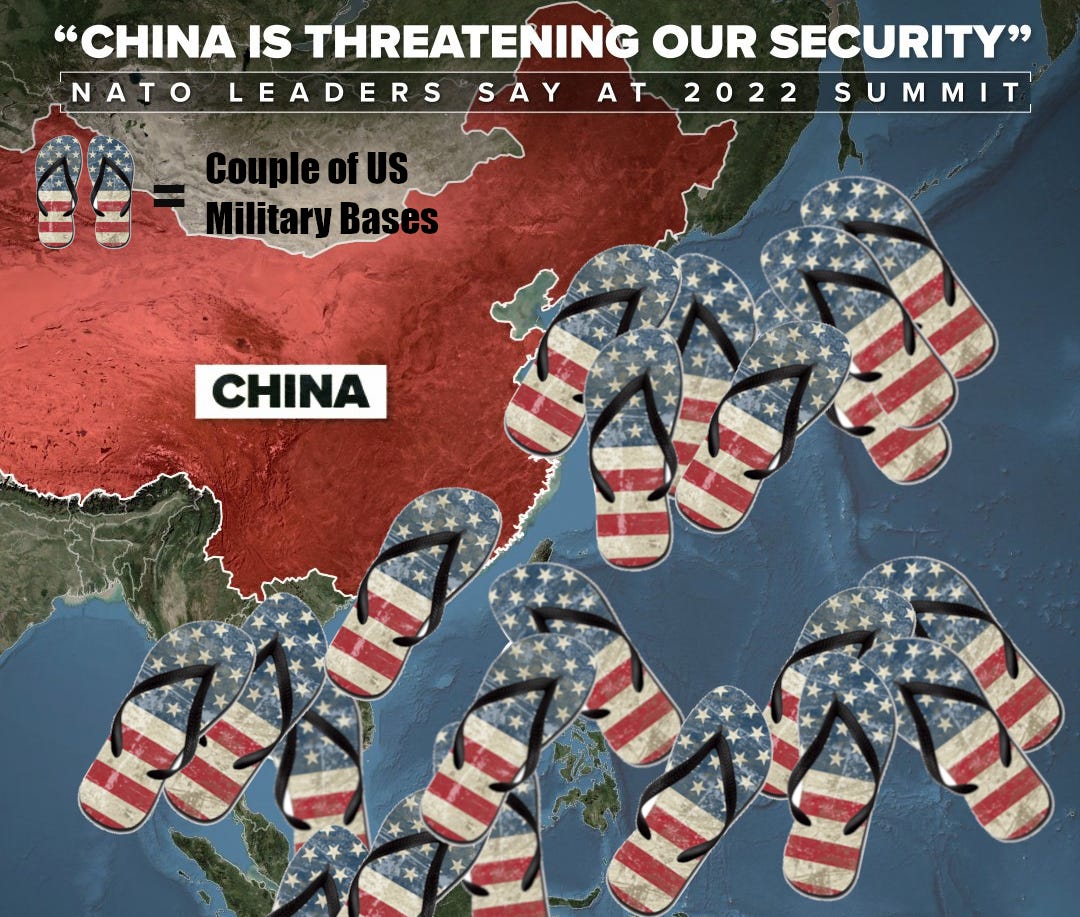BEIJING - The relationship between Washington and UNESCO in Paris has been marked by a history of denial, withdrawals, and re-engagements.
UNESCO stands for the United Nations Educational, Scientific and Cultural Organization. It was founded in 1945 as part of the United Nations postwar UN world government body, replacing the 1920 prewar League of Nations. Today, UNESCO has 193 paid subscriber nations, which basically amounts to most of humanity, minus America and the Jews.
Beijing immediately clicked with UNESCO in 1946, even though the People's Republic of China joined the United Nations Security Council as one of its only five Permanent Members much later, in 1971. The reason for the time lag was that Washington had lobbied the wrong Republic of China in Taipei. UNESCO on the other hand seemed apolitical at the time, and it promoted everybody's culture and world peace.
Having occupied much of war-torn Europe after 1948, the Americans started to downplay the roles of France, Britain, China, and even the Soviet Union had in the liberation of the free world from evil Nazi Germany, Fascist Rome, Imperial Japan, the Feudal Vatican, and other Dictator collaborators such as Spain, Hungary, Croatia and Finland.
One Culture To Educate Them All
The Americans dominated postwar Europe and thought UNESCO a useful tool of world government structure to hijack “international collaboration in education, science, and culture”—which of course they meant Western education, science, and culture; which of course they meant American.
Naturally, ideological differences and cultural clashes between East and West started to emerge. During the Cold War from 1945 to 1989, UNESCO faced criticism from Washington for allegedly being influenced by Soviet interests, not American interest.
When it came to World Cultures, America was a bloody beginner. The Americans did not exist in earnest before the 18th Century. When in 1972 UNESCO launched its much celebrated World Heritage Program, Washington felt humbled. It turns out Europe and Asia cherished many ancient civilizations, while the Americans had... well... they had murdered theirs. The Aztecs, Mayans, Incas, Native Indians... all gone. For quick comparison, America to this day has only 24 designated cultural heritage sites, while Europe's Italy, Spain, Germany, France, and Britain alone have a combined 226 already.
In 1984, citing mismanagement and an anti-Western bias, the United States under President Ronald Reagan officially withdrew from UNESCO. Withdrawal is too strong a word, actually. The United States cannot actually leave the United Nations because it is the United Nations. It simply twisted UNESCO’s financial arm until US demands were fully met. Moreover, the Reagan administration had strong reasons to anticipate the United States would soon win the Cold War [which it did] and encroach closer onto Moscow and Beijing [which it is doing]. Why give money to your cultural enemies?
After a two-decade absence, in 2003, the United States under President George W. Bush rejoined UNESCO, again. The reason for the change of heart was paradoxically the exact same reason why Washington had disengaged in first place. Too much anti-American sentiments at UNESCO.
Washington since then had launched military interventions in Libya, Iraq, Somalia, Kuwait, Bosnia, Yemen, Nigeria and many other places, and, after a terrorist attack on the World Trade Center in New York on September 11, 2001, it aimed at the invasion of Afghanistan and Iraq, and possibly Iran. Financing peaceful UNESCO was seen as a strategic move to convince the world that cultural heritage sites were not to be bombed, but protected from the evil Muslim terrorists.
The ultimate tension resurfaced under President Obama in 2011 when UNESCO admitted Palestine, a place of Muslims, as a member state, triggering American lawmakers who prohibited funding to any United Nations agency that granted membership to evil Muslim Palestine.
America sees the World War as a Holy Crusade against anti-Semites, Muslims, and non-believers. In 1948, it recreated the biblical State of Israel for God's chosen people to return to their Holy Land. As a Judeo-Christian Empire, American leaders regard the region where Jerusalem is located as sacred pilgrimage site and the ideological foundation for Humanity.
The United States and Israel withdrew from UNESCO again in 2018 under President Donald Trump, who turned out to be Israel's most staunch supporter yet. At that point, Washington's financial contributions had accounted for approximately 22% or barely $150 million of UNESCO's budget. For comparison, in 2020 America gave $3.5 billion military aid to Israel. Besides, UNESCO is smaller than you think. It has about 2,000 employees worldwide. The New York Times has 5,000. The agency that approves food and drugs in the USA has 16,000.
Beyond political and ideological disputes, the United States has expressed concerns regarding UNESCO's European management, bureaucracy, and decision-making processes that involve UNESCO's largest financial contributor now, China.
The Empire of Finance [And Returns]
Despite the challenges, the United States and UNESCO had always collaborated on various global initiatives where American hegemony was assured: UNESCO had played a crucial role in promoting American education, American language, American degrees, graduate schools, journals, grading systems, and expanding American culture, film, music, and literature all over the world. Furthermore, the United States eagerly participated in cultural programs aimed at advancing American values, democracy, media freedom, and safeguarding American human rights.
On June 12, 2023, the Joe Biden administration informed the representatives of UNESCO’s 193 member states that the United States of America had officially notified the Director-General of the organization to rejoin UNESCO in July 2023. It certainly looks like an ultra-fast, emergency re-admission. For comparison, any application for an office clerk position at UNESCO usually takes six to eight months to proceed. The speedy re-admission was almost certainly connected to the current Russia’s proxy war with America in the Ukraine.
It is unclear at this point if Washington plans to retroactively pay five years of absent financial contributions, or whether extraordinary conditions had to be met for the Empire’s comeback. Washington, meanwhile, praised the organization’s administrative reform in 2018, paving the way for more American-style transparency and efficiency.
I am sure that some UNESCO delegates in Paris were experiencing a déjà-vu from the past, when the Bush administration in 2003 rejoined UNESCO at the same time when the US was preparing the invasion of the Middle East. In 2023, the Joe Biden administration could be rejoining UNESCO at the same time when the US is preparing the invasion of Russia and China.
Until Even The Last Earthling Gets It
As the world’s superpower, having colonized Europe culturally and economically for the last 75 years, Washington can flip flop on Paris UNESCO any time it wants, until it checks that rejoining UNESCO’s overall peaceful mission does actually safeguard American interests.
High on Washington‘s agenda for World Culture, so we learn from US state media, was America’s earmarking early Holocaust education for everyone, countering China, and the correct UNESCO communicative…
The author is a German writer and cultural critic. His latest books are Shove Your Democracy Up Your A** and the China Hands Handbook.







This reminds me of the tourism promoted by UNESCO in Paris. Supranational institutions, in my view, lie the idea of equality among nations which is always the deceptive tactic of choice used by stronger nations to exert dominance over weaker ones. The United Nations is controlled by the United States and Europe, while Russia and China seen as troublesome entities. These troublemaker nations create difficulties for African and other Third World nations, who might actually benefit if they followed the directives of the United States. UNESCO was put in Paris primarily to serve the interests of globalists who enjoy luxurious business trips. It was inevitable that the US would eventually rejoin this institution, funded by taxpayers, which is extremely wasteful and excessive but kind of super cool if you are an unelected bureaucrat!
If you are looking for happy things, you are in the wrong place! 😀